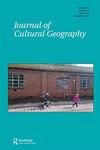变革时代对海洋的传统认识:巴西伊哈贝拉的caiara
IF 0.9
Q3 GEOGRAPHY
引用次数: 2
摘要
摘要巴西沿海的Caiçara渔业社区,特别是在Ilhabela岛上,展示了传统的海洋知识。这个研究项目的特点是与他们进行合作,目的是分享他们的观察、智慧和关切。Caiçara主要以手工小规模捕鱼、种植适度作物为生,最近还为游客提供餐饮服务。几百年来,直到最近,他们的生活方式基本上没有改变。他们的生活模式突出了不断变化的生态条件,表明了生态系统和传统捕鱼做法的脆弱性。它们与环境密切相关,它们的方式放大了世界上许多最紧迫的问题,如气候变化、保护的必要性、政府监管的影响和传统知识的贬值。一个民族在更广阔的世界中的表现——或虚假陈述——对他们的命运至关重要,并促进或抑制他们在环境中创造积极条件的能力。鉴于文化地理学中关于表现的方法、优点和陷阱的长期争论,对一个民族进行某种类型的刻画仍然是必要的,如果没有其他原因的话,那就是为了让他们得到政治认可。这种参与性的实地调查通过积极的见证超越了学科界限。本文章由计算机程序翻译,如有差异,请以英文原文为准。
Traditional knowledge of the sea in a time of change: the Caiçara of Ilhabela, Brazil
ABSTRACT The Caiçara fishing communities of coastal Brazil, specifically on the island of Ilhabela, demonstrate traditional knowledge of the sea. This research project features collaborative engagements undertaken with them, with the aim of sharing their observations, wisdom and concerns. Caiçara live primarily by artisanal small-scale fishing, cultivation of modest crops, and recently, catering to tourists. Their ways of life have remained substantially unchanged hundreds of years, until recently. The pattern of their lives highlights changing ecological conditions, manifesting vulnerability of the ecosystem and traditional fishing practices. Linked intimately to the environment, their ways serve to magnify many of the world’s most pressing concerns about climate change, the need for conservation, the effects of governmental regulation and the devaluing of traditional knowledge. The representation – or misrepresentation – of a people to the wider world crucially shapes their fortunes and promotes or inhibits their ability to effect positive conditions in their environment. In recognition of a long debate in cultural geography about the methods, merits and pitfalls of representation, the necessity remains for some type of portrayal of a people, if for no other reason than to permit them to be politically recognised. This participatory fieldwork transcends disciplinary boundaries through active witnessing.
求助全文
通过发布文献求助,成功后即可免费获取论文全文。
去求助
来源期刊

Journal of Cultural Geography
GEOGRAPHY-
CiteScore
1.70
自引率
22.20%
发文量
15
期刊介绍:
Since 1979 this lively journal has provided an international forum for scholarly research devoted to the spatial aspects of human groups, their activities, associated landscapes, and other cultural phenomena. The journal features high quality articles that are written in an accessible style. With a suite of full-length research articles, interpretive essays, special thematic issues devoted to major topics of interest, and book reviews, the Journal of Cultural Geography remains an indispensable resource both within and beyond the academic community. The journal"s audience includes the well-read general public and specialists from geography, ethnic studies, history, historic preservation.
 求助内容:
求助内容: 应助结果提醒方式:
应助结果提醒方式:


